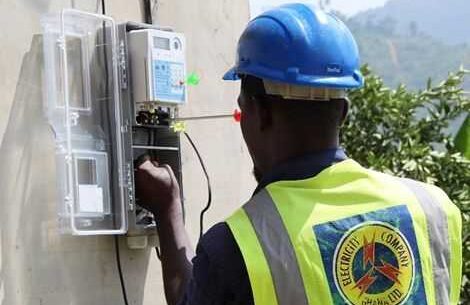Households and businesses in Ghana will pay slightly more for electricity from October 1, 2025, following a 1.14% upward adjustment in tariffs announced by the Public Utilities Regulatory Commission (PURC). Water tariffs will, however, remain unchanged during the same period.
The adjustment was communicated in a statement issued on Tuesday, September 23, 2025, as part of PURC’s Quarterly Tariff Review Mechanism, which ensures that utility prices reflect key economic shifts outside the control of service providers.
Why the increase?
According to the Commission, the latest review factored in:
- Exchange rate pressures: The Cedi has weakened against the dollar, with a projected weighted average of GHC12.37 to $1 applied in the review.
- Domestic inflation: Set at an annual average of 12.43% for the fourth quarter.
- Gas costs: Maintained at an approved Weighted Average Cost of Gas (WACOG) of $7.71 per MMBtu.
- Generation mix: Remains unchanged at 28.8% hydro and 71.2% thermal.
The PURC explained that while the increase is modest, it is necessary to preserve the financial health of utility providers, many of whom face rising costs due to currency depreciation and inflationary trends.
“These adjustments are undertaken quarterly to maintain the real value of the tariffs and to keep the utility service providers financially viable to enable them to deliver on their services to consumers,” the statement read.
Impact on consumers
For ordinary consumers, the 1.14% increase means only a marginal change in monthly bills, but for businesses with high energy consumption, the adjustment could translate into higher operational costs.
Read Also: Three West African countries to quit International Criminal Court
Analysts say the decision reflects the regulator’s attempt to strike a balance between consumer protection and ensuring that power producers and distributors remain solvent enough to sustain supply.
No change for water users
Unlike electricity, water tariffs will remain stable. The Commission explained that current economic variables do not warrant any upward adjustment in water charges for the quarter.
Broader energy sector challenges
The review comes at a time when Ghana’s energy sector is grappling with rising debts owed to Independent Power Producers (IPPs) and concerns over the impact of a depreciating Cedi on imported fuel costs. Experts warn that without periodic tariff reviews, service providers could struggle to maintain operations, leading to potential disruptions in supply.
The Commission assured the public that the marginal increase will not significantly burden consumers, stressing that the quarterly reviews are designed to keep the sector stable, transparent, and fair to both providers and users.

























